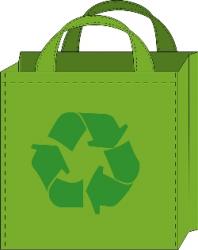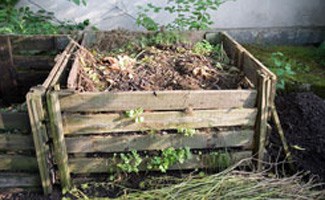Why is Eco-Friendly Living Important?
 Eco-friendly living isn’t a new trend, in fact over the years it is the concept of what comprises eco-friendly living that has changed. As time marches onward and researchers are able to identify items within our everyday lives that are actually contributing to the degradation of our planet it is our responsibility as the “top of the food chain” and the causing factor for such degradation to attempt to reverse some of the damage that has been done. While certain factors like “global warming” may be more controversial as far as the validity of research behind findings, other factors such as the severity of deforestation worldwide is not as disputable. Fortunately for the human race and every other species that depends upon the planet for sustenance, there are many changes that we can make that can help to support the healing of our planet.
Eco-friendly living isn’t a new trend, in fact over the years it is the concept of what comprises eco-friendly living that has changed. As time marches onward and researchers are able to identify items within our everyday lives that are actually contributing to the degradation of our planet it is our responsibility as the “top of the food chain” and the causing factor for such degradation to attempt to reverse some of the damage that has been done. While certain factors like “global warming” may be more controversial as far as the validity of research behind findings, other factors such as the severity of deforestation worldwide is not as disputable. Fortunately for the human race and every other species that depends upon the planet for sustenance, there are many changes that we can make that can help to support the healing of our planet.
Eco Friendly Living Affects Every One on the Planet
For many people the concept of eco-friendly living is something that “tofu eaters” and “tree huggers” obsess about and not something that impacts their lives; however, this couldn’t be further from the truth. As the amount of damage that we inflict upon this planet increases, the ability of that damage to be reversed becomes less and less likely. While it may seem that a concept so much larger than ourselves is not something that
touches our lives, we depend upon many of the aspects of the planet that are being affected by our carbon footprint. A prime example of our dependence on the Earth is the deforestation of the planet that, while providing us with a never-ending supply of paper products, has significantly reduced the tree population resulting in an impact on the air quality as well as other species that once called these forests home. If we do not address these factors by making changes in our living habits we could soon destroy the one planet that has a track record of supporting life.
Reducing Consumption of Paper Products
While paper products are just the tip of the iceberg when it comes to beginning an eco-friendly lifestyle, they are a great place to start. Very few of us are aware of how dependent we are on paper products until we make the effort to reduce our paper consumption. Most households, particularly in the United States, England and Europe, depend upon paper towels, toilet paper, and writing paper and use these things in abundance without thinking of the amount of waste that is being created. There are two methods to cutting down the use of paper products in the home, one is to vastly reduce the use of these products by keeping a watchful eye on consumption and the other is to eliminate most of these products entirely. Eliminating the use of some paper products in the household is the most efficient way to promote eco-friendly living. Of course it is not practical to expect your household to eliminate the use of toilet paper; however, reducing the amount used and using a brand of toilet paper that is made from recycled materials is a great way to contribute to environmental conservation efforts. Other items such as paper towels are much easier to eliminate and replacing paper towels with bar towels that can be washed and reused is a change that will not only significantly decrease paper consumption, but it will also decrease your monthly shopping bill!
The Value of Recycling
No eco-friendly living suggestion would be complete without the mention of recycling. In more recent media coverage the value of recycling has been questioned as independent researchers have attempted to show that the resources utilized to recycle are actually more draining on the planet’s resources than the benefit received from recycling. While arguments still rage in regards to whether or not recycling causes more damage than it saves, the general consensus seems to be that recycling is still one of the best ways to live an eco-friendly lifestyle. There are a wide variety of recycling methods and simply taking part in one of them is a step towards having a positive impact on the environment. For many people it has actually become law in their town that all cans and bottles much be recycled lest they be fined and it is the hope of environmentalists that mandating such a small step will lead to an increase in the steps that people are willing to take to become more eco-friendly. For some people recycling will stop at cans and bottles, but for others the sorting of household trash becomes such a ritual that by the end of the week there is very little trash to go out since the majority is being recycled. Recycling isn’t only about bottles, cans, newspapers and glass though; recycling can also involve kitchen scraps that can be utilized in composting! Composting is a good method to cut down the amount of trash that goes to landfills and an even better way to keep plants and flowers looking healthy throughout the year!
Living a Healthier Lifestyle Also Impacts the Planet Positively
Living a life that is beneficial to the planet is not all about recycling and reducing use of paper products but it is also about making conscious choices that are better for the human body as well as for the planet. A great example of this is the use of the car, while so many of us are capable of walking two blocks to the local coffee store most of us don’t. In a society where we emphasize the importance of every last-minute we prefer to step in to our cars and drive those two blocks to get our premium coffee and then drive home. Not only is this one of the bad habits that has contributed to the incredible rates of obesity in developed nations like the United States, but it is also a habit that contributes to the incredible carbon footprint that we as a species are leaving upon the Earth. Certainly some are more conscious in their laziness and choose to utilize hybrid and electric cars; however, while this reduces the carbon footprint it does not reduce the drain of an obese race on the resources of the planet.
Obesity is a Problem that Affects the Planet And Population
It may not make sense to think of obesity as being a drain on the planet but the truth of the fact is that it is an increasing problem as far as the planet is concerned. As developed nations follow the trend of incredible rates of obesity various things happen that are a drain on the natural resources and environment. The most obvious change that occurs as a result of obesity is the increased demand for food, foods that are farmed on agricultural farms that utilize pesticides to increase the output of each crop so that they may keep up with the demand for basic resources. As the foods that are in increased demand are farmed they pass from the natural raw form in transportation convoys that increase pollution and wind up at large manufacturing plants. Anyone who has driven past a manufacturing plant of any type can attest to the massive plumes of smoke that flow from the tall chimneys and filter not so inconspicuously in to our atmosphere. Another factor that grows from increased obesity rates is the increased demand for medications to treat obesity related diseases such as diabetes that require medication and the use of hypodermic needles, all of these must also be manufactured and result in waste products in gaseous and material form. Certainly, as any species must, we must eat, so what can we do to decrease the impact of our eating on our environment? Maintaining a healthy lifestyle is a great place to begin because the more we control our health the less we utilize our cars, demand medications, over use natural resources and increase pollution. Purchasing organically grown and pesticide free foods and eating more naturally grown rather than processed foods is another great way to reduce the impact of our eating habits on the ecosystem.
The Impact of Wasting Water
Another natural resource that we drain indiscriminately is water. In recent years the demand for water has increased so much and the changes in weather patterns have reduced the availability of this natural resource that areas of the world have been in a continual drought status for months on end. Despite the urgency of the situation individuals still do not curtail their water use. Things that are as simple as turning off the water while brushing teeth, taking shorter showers and running the dishwasher less often are great ways to decrease water use. If every household were to exercise similar awareness of their water consumption it is would not result in the loss of plant life, crops and animal and fish populations that prolonged droughts can cause.
The Importance of Reducing Electricity Consumption
Local television stations have not only dedicated time to trying to raise awareness of water consumption but they have also tried to raise awareness of electricity use as well. Recent commercials have addressed the point of unplugging items within the house when they are not in use as well as turning off lights when a room is not in use. While electricity use does not carry the same impact on the natural environment as over consumption of water does, over use of electricity still damages our environment. Electricity must be produced and in the process of generating electricity a variety of fuels are utilized that negatively impact the environment. From the fossil fuels that are utilized by power plants to the land tracts used for mining, each variation of energy production results in the release of toxins in to the environment. Research conducted in 2002 revealed that in the United States alone acid rain, urban smog, global climate change and health risks were greatly affected by the output of sulfur dioxide, Nitrous Oxide, Carbon, and Mercury emissions respectively. So with an action as simple as unplugging appliances that are not in use, the drain on the ecosystem is greatly reduced.
Run off and Pollution by Manufacturing Plants and Factories
The plants that generate electricity are not the only plants that are responsible for having a negative impact on the environment, in fact virtually every manufacturing plant and factory plays a part in contributing to pollution. It is not only the air pollution that comes from these monster factories either, in fact the run off that comes from these major plants has a significant impact on rivers and land that border these industrial areas. As the land and water around these areas become increasingly polluted native species of the area begin to suffer the consequences and not only suffer injury and death from pollution but they also suffer mutations within their species which change the development of an entire species of native animal. Some people find that they can make a difference in the amount of runoff that plants produce by staging protests to increase awareness of the problem; others take a much more subtle route and decrease their reliance not only upon electricity but also upon merchandise that they purchase. Whether deciding to purchase items from factories that are designated as eco-friendly or whether simply decreasing the amount of items that are purchased in total both of these steps make a difference on the impact that our consumer habits have on the environment.
Switching From Disposable to Reusable Products
 Decreasing the amount of products that are purchased is not only a good way to reduce the amount of pollution created by large factories and plants but it is also a good way to reduce the amount of waste that is produced per household across the world. As waste production is decreased, the amount of land that is designated for use as landfills decreases which in turn decreases the amount of chemicals that leech into the soil at each of those landfills. When endeavoring to decrease product consumption it can be rather daunting at first; however, beginning by replacing disposable items in the home with multiple use items is a great place to start. Not only does utilizing multiple use items decrease the amount of waste that each household produces but it also results in a significant savings per household as items are being purchased less frequently. There are many items in every household that can easily be replaced with multiple use items including: paper towels, disposable razors, disposable Tupperware containers, disposable plates and cutlery, disposable drinking bottles, Ziploc bags, coffee filters, paper lunch bags, plastic or paper grocery bags, paper napkins, diapers, non-refillable soap containers and disposable mop heads.
Decreasing the amount of products that are purchased is not only a good way to reduce the amount of pollution created by large factories and plants but it is also a good way to reduce the amount of waste that is produced per household across the world. As waste production is decreased, the amount of land that is designated for use as landfills decreases which in turn decreases the amount of chemicals that leech into the soil at each of those landfills. When endeavoring to decrease product consumption it can be rather daunting at first; however, beginning by replacing disposable items in the home with multiple use items is a great place to start. Not only does utilizing multiple use items decrease the amount of waste that each household produces but it also results in a significant savings per household as items are being purchased less frequently. There are many items in every household that can easily be replaced with multiple use items including: paper towels, disposable razors, disposable Tupperware containers, disposable plates and cutlery, disposable drinking bottles, Ziploc bags, coffee filters, paper lunch bags, plastic or paper grocery bags, paper napkins, diapers, non-refillable soap containers and disposable mop heads.
Earth Pollution is also Sometimes Species Pollution
Ironically, some of the things that we do that contribute to our planet’s decline in health also impact our own health and this is not just limited to the air we breathe. A common practice for years has been to flush unused medications down the toilet or wash them down the sink. Unfortunately many of the drugs that people flush in to the water system cannot be completely cleansed from the water system and as they go on to pollute the natural resources that water touches, they also go on to pollute other human beings. Recent studies have found levels of antibiotics, anticonvulsants, mood stabilizers and sex hormones in local water supplies within American homes. These drugs not only affect the ability of local land to flourish but they also affect humans and other species that drink the water supply resulting in medical complications. A recent push from pharmacies and environmental agencies has prompted a reminder to all prescription drug users to return any unused medication to the pharmacy for proper disposal. By taking part in this program not only are families across the country preventing degradation of natural resources but they are also saving themselves from side effects of medications that they are not even taking!
Wash Your Clothes in an Eco-Friendly Way
Have Dirty Jobs Clothing
 There are actually a surprising number of ways that handling your laundry can contribute to being a much more eco-conscious household. One of the biggest tips that professionals give is to keep clothing that is specifically designated for dirty jobs. For example, if you are repainting rooms in your home, keep an outfit that you expect to get messy and wear that outfit only when performing that job. This avoids having to rewash outfits that require additional stain release products and cuts down on the amount of laundry being done.
There are actually a surprising number of ways that handling your laundry can contribute to being a much more eco-conscious household. One of the biggest tips that professionals give is to keep clothing that is specifically designated for dirty jobs. For example, if you are repainting rooms in your home, keep an outfit that you expect to get messy and wear that outfit only when performing that job. This avoids having to rewash outfits that require additional stain release products and cuts down on the amount of laundry being done.
Wash Only What Must be Washed
Another tip that stems from this advice is to only wash clothes when they genuinely need washing. This tip tends to be more popular in countries other than the United States where there seems to be a stigma attached with re-wearing clothes. There are many types of clothing however that do not require washing as regularly as other items, for example, where undergarments obviously require changing daily leading to washing build up, other items such as blue jeans, do not require washing as regularly.
Consider Air Drying Your Clothes
Air drying clothing is another option to help you to save money and reduce the effect that your laundry habits have on the environment. Air drying clothes not only reduces the amount of electricity that you use and reduces the impact that you have on the world around you, but it also ensures that your laundry has a fresh clean scent with less chemical additives than they would receive from dryer sheets in your home dryer.
Heating Your Home in an Eco-Friendly Way
Eliminate Any Draughts
Another area of our everyday life that greatly affects the world around us is the heating of our homes. A drafty home is a home that requires more heat to keep it warm because a lot of the heat that is being generated is being lost through cracks and gaps in the houses framework. There are a number of ways to eliminate draughts including placing draught blockers against door and window cracks and using fireproof sealants around fireplaces. Simply reducing the number of “leaks” in a home can greatly reduce the impact that home has upon the environment. The added benefit of reducing the number of draughts in a home is also a reduction in electricity bills – something that should be exceptionally welcome in most homes.
Avoid Modern Furnishings
Modern furnishings such as bare wood floors, industrial ceilings and leather sofas might seem fashionable but did you know that these things can actually reduce the effectiveness of a room at withholding heat? If you are looking to reduce your heating bills and the impact that your home’s heating has on the environment, go with furnishings that are soft, warm and cozy.
Increase the Level of Humidity
Many people aren’t aware of the fact that an increase of humidity within the home can lead to a room feeling much warmer than it may otherwise feel. During the winter times running a humidifier that has been certified as being energy-efficient is an affordable way to heat your home while bringing down heating bills and reducing your carbon footprint. The lower levels of power required by a humidifier do not even compare to the amount of energy required by a heating unit for a home.
Eco-Friendly Home Cooling Strategies
Maintain a Constant Temperature
Just as heating the home can result in a significantly large carbon footprint, so too can cooling a home. One of the most highly recommended methods for green home cooling is to set your home thermostat at a constant temperature when you are home and increase that temperature when you are not home. Ensure not to turn up the temperature too much when leaving the home otherwise the cost to bring the temperature back to a comfortable level will be just as high as if the unit had not been turned down in the first place.
The Placement of Air Conditioning Units
Not many people know that the placement of a room air conditioning unit has quite a lot to do with the amount of electricity that the unit uses. Researchers have shown that air conditioning room units placed on the shaded side of the home require approximately ten percent less energy to function! Additionally natural shading of windows and room air conditioning units can significantly reduce the cost of air conditioning in the home as well and cut down on the size of your carbon footprint. Plant a few trees around windows of the home and get a beautiful view as well reduce your impact on the environment.
Get Yourself off Junk Mailing Lists
Very few people actually enjoy getting a mailbox full of junk mail and catalogs that they never use. While some people do choose to recycle this type of mail, many others do not. The simplest solution to this problem however, is to ensure that you are not on the junk mail list to begin with. Being subscribed to one of these types of lists can happen automatically when purchasing items from certain stores or you may have subscribed to a magazine at some point and no longer enjoy reading it. If this is the case, most organizations provide a method for getting yourself off the mailing list to reduce the amount of material that is being wasted if you are no longer reading these materials. If you are still reading these materials, ensure that you dispose of them by recycling rather than simply throwing them away.
Eco-Friendly Living Doesn’t Haven’t be Selfless to be Effective
Whether the reasons for eco-friendly living are selfish or instead related to a desire to preserve the planet there seems to be little argument that these changes are ones that need making. Without a transition to increased awareness of our impact upon the world in which we live it seems that hundreds of years from now our descendants will be left to pick up the pieces of a broken planet that resulted from our own greed and laziness. In the worst case scenario there will be little left of the planet for future generations to survive upon which is perhaps why the research in to life on other planets has taken a sudden upturn. Fortunately for us it is not too late to make a difference; however, if we leave it much longer without making changes to our wasteful daily routines it will be.



